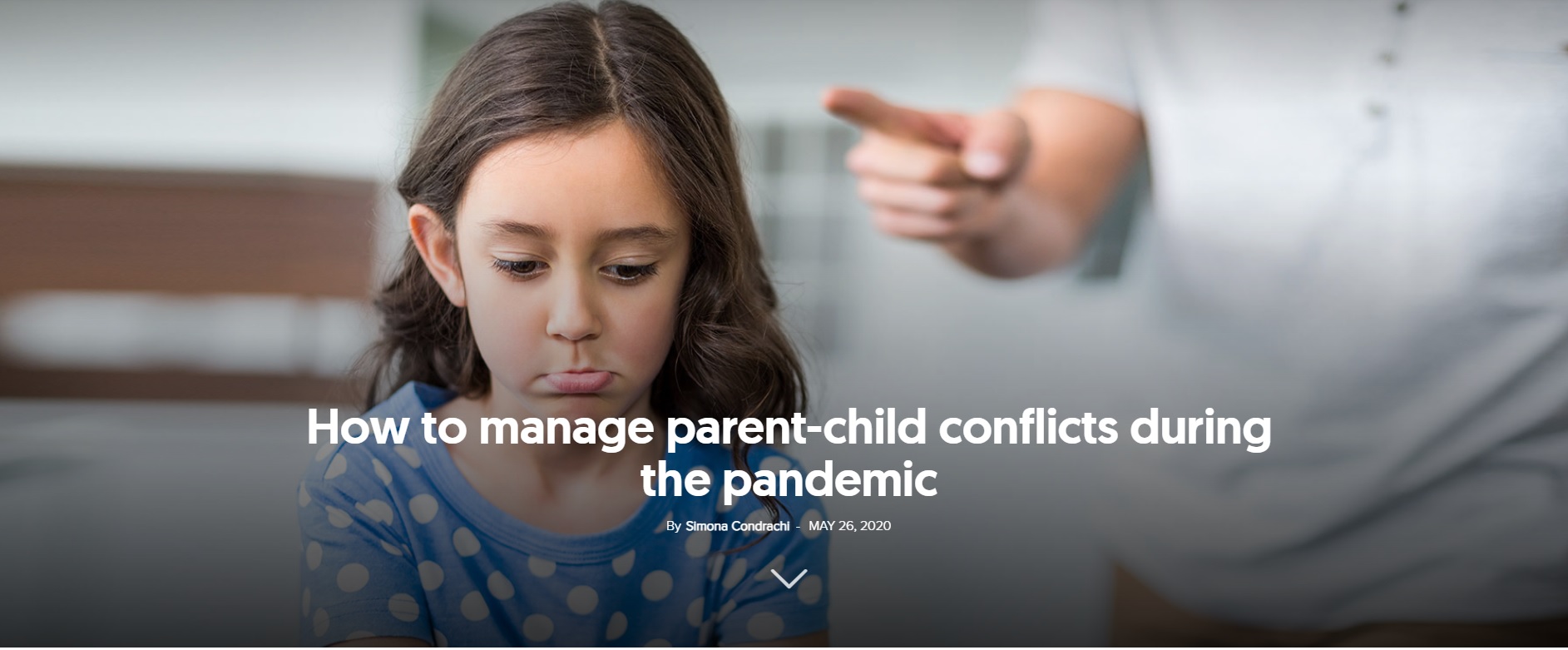Happy couples are not spared from marital conflict, but the crucial thing is that they have simple but effective tools to strengthen their relationship in a way that does not allow the conflict to destroy the emotional connection between them.
Conflicts are not scary if you know how to deal with them, but the turn they take depends a lot on the quality of the relationship, explains psychologist James Creighton. In a solid relationship, partners have the courage and openness to address sensitive issues, while in fragile relationships each new dispute tends to increase the distance between partners.
When silence is not golden
Too few therapists recommend conflict, and just as few couples are open to facing it, but disputes have the potential to consolidate a marriage, Professor John Gottman concluded more than 30 years ago. Gottman himself was surprised by the results of his study conducted in collaboration with psychologist Lowell Krokoff. In fact, Gottman wrote, the findings of the research were unexpected and counterintuitive, so, in the first phase, the researchers thought that an error must have crept in somewhere. In essence, the study showed that partners who have disagreements but deal with them in a healthy way strengthen their relationship over time. Couples who emerge even stronger from marital conflicts are those in which the partners feel free to be upset about the other’s behaviour or reactions, are convinced that their significant other understands their point of view and, in the end, manage to reach a solution.
The study also showed that among the most destructive ways of dealing with conflict are taking refuge in stubbornness, fierce defences, or making excuses, fixating on what the other needs to change, insulting one’s partner, whining, or the habit of attributing unfair thoughts, feelings, and motivations to the other.
The absence of conflict can be ominous for a couple, Gottman concluded, explaining that in some marriages, there is even an agreement between partners not to fight against each other—an agreement that delivers peace on favourable terms, but which devitalizes the relationship and foreshadows the failure to cope with hard times.
The major mistake couples make is that they avoid discussing relationship issues until the glass is brimming with tension.
Trying to capitalize on the results of this study, psychologist Howard Markman coordinated a University of Denver project that aimed to train couples to acquire constructive conflict resolution skills. In the first stage, couples who learned how to manage conflict reported a lower level of happiness, but their relationship satisfaction increased over time. Also, the divorce rate of couples who participated in this training program was half that of couples who did not take part in the program.
The major mistake couples make is that they avoid discussing relationship issues until the glass is brimming with conflict, and the chances of a healthy dispute are reduced to zero, writes Joseph Grenny, co-author of the bestseller Crucial Conversations. Even if this short-term strategy seems to work, this silence has long-term costs on the trust, privacy, and connection between partners, as Grenny points out.
The patterns we use in dealing with a conflict can predict the longevity of a marriage, according to studies. There are some very toxic patterns, such as those in which the partners scream at or insult each other during an argument, a pattern that increases the risk of divorce. Another particularly toxic pattern is when one of them has a constructive way of resolving the conflict while the other withdraws—this was the conclusion reached by researchers at the University of Michigan. The one who tries to calmly listen to the other’s point of view or to understand their feelings interprets their significant other’s habit of avoiding discussions as a lack of investment in the relationship, which increases the chances of dissolving the marriage, explains researcher Kira Birditt.
Happy couples quarrel too, but they choose their battles wisely
Happy couples have marital problems as well, but their secret is that they take a solution-oriented approach to conflict, Amy Rauer says, coordinator of a study on the subject published in 2019. The couples who participated in the study placed privacy, free time, domestic chores, communication, and money among the most serious problems they face, while religion, jealousy, and extended family related problems were placed in the category of the least important.
An important factor in happiness in a relationship seems to be that of focusing on conflicts that have a clear solution, the researchers found. Thus, happy couples choose to discuss issues related to the distribution of tasks in the household, where it is easier to identify concrete solutions. Also, couples with a long-term relationship reported that they face few problems that can be labelled as serious. In conclusion, the focus on perpetual problems, which are difficult to resolve, erodes the trust in the relationship, but the collaboration of partners to put an end to small-scale conflicts gives them the confidence to resolve serious misunderstandings too, says Rauer.
The fuel of conflict: from emotion to the belief that generates it
Feeling understood and respected during a dispute is a crucial factor in the constructive resolution of conflicts, says psychologist Randi Gunthe. Four decades of couple therapy have shown Gunthe that the reasons that generate the conflict are secondary, while the most important aspects in saving a relationship are partners making sure they remain friends while going through episodes of conflict and making an effort to identify solutions that work.
Wives have a major role in managing negative emotions and preserving the satisfaction of the marital relationship.
Negative emotions threaten the well-being of the couple, but in their management, wives have a very important role, says psychologist Lian Bloch, summing up the findings of a study by researchers at the University of California, Berkeley, which found that a wife’s ability to keep or very quickly regain her calm during an argument is a key element in maintaining relationship satisfaction. The researchers analysed videos of 80 couples who participated in the study and who were periodically recorded during the disputes they had over 13 years. The results showed that there is a correlation between the length of time partners have been driven by negative feelings and long-term marital happiness, but also that in those relationships where the wives have managed to quickly regain their composure, the chances of both short- and long-term happiness of the couple increased. The husband’s ability to stay calm or regain calm did not have as strong an impact on the couple’s happiness.
“Emotions are at the heart of virtually all marital problems, even those that appear to have no emotional underpinnings,” said psychologist Rob Pascale and Lou Primavera, Dean of the School of Health Sciences at Touro College. Starting from the analysis of a common reason for conflict, such as the fact that the husband doesn’t take out the trash, Pascale and Primavera show that in order to solve a couple’s problem, they need to deal with the emotions that generated the conflict. Our emotions are only the result of what we think, according to the theory of psychologist Albert Ellis, the founder of rational-emotional behavioural therapy.
“Emotions are at the heart of virtually all marital problems, even those that appear to have no emotional underpinnings.”
This means that it’s not the fact of not taking out the trash (or evading this task) that generates the negative emotional reaction, but what each partner believes about this obligation. The way we think about marriage or how our significant other should act seeps into every aspect of the relationship and creates negative emotions when our beliefs and expectations are not confirmed by the other’s behaviour.
Some of the problems that occur frequently between partners could stem from their irrational beliefs and, consequently, the negative emotional overload that derives from them, Pascuale and Primavera say. They explain that the solution is to identify irrational beliefs (or at least those toxic to the relationship) and replace them with more rational beliefs. Although the strategy may not work for every marital problem, the authors say that its applicability is quite broad and that the main advantage is that it moderates emotional reactions by defusing the tension of the conflict and thus promoting the detection of viable solutions.
Demon Dialogues: destructive patterns of communication and the need for connection they reveal
The better the connection we have with our partners, the better we can bear the inevitable wounds they cause us and the better we manage the negative emotions caused by these incidents, says psychologist Sue Johnson. After trying for a long time to find explanations for the storm of negative emotions that the couples who came to her office for therapy were going through, Johnson came to the conclusion that everything has to do with the degree of security felt by the partners in the relationship. In essence, it’s about attachment—the model of relationship that is established between people who are close to one another.
John Bowlby is someone who researched the relationship between the child and the mother, elaborating the theory about establishing this first attachment relationship until the age of 18 months, a relationship that will determine the matrix based on which the following relationships will be built.
The same need to connect with a loved one is also felt by adults, said psychologists Phil Saver and Cindy Hazan, analysing the results of a survey. Adults need closeness and, when their relationship is good, they feel like they can explore the world, and the way they communicate with partners depends on how secure they feel in the relationship.
Ultimately, it is not growing conflict that will hinder a relationship, but emotional detachment.
Based on these data, which show that love is the fundamental primary need of an adult, Johnson identifies the basis of marital conflicts as the loss of emotional connection. Conflict is only the tip of the iceberg, and the loss of emotional connection will inevitably result in reproach, resentment, suspicion, and distancing, Johnson says. In the end, it’s not the growing conflict that will hinder a relationship, but emotional detachment, which will be reflected in three basic conflict patterns, which Johnson calls the “demon dialogues”.
Find the Bad Guy: This is the dead-end pattern of mutual blame, the predictable outcome being the distancing of partners, who no longer feel that they can find refuge in each other. Partners enter this destructive pattern because they feel hurt and vulnerable, so they attack to protect themselves, to regain control. The problem is that this reaction becomes, by repetition, a pattern, one that generates more and more suffering.
The Protest Polka is a strong reaction to the loss of the feeling of secure attachment we have in a relationship. Many of the couples who end up in this pattern don’t even reach their fifth anniversary, as psychologist John Gottman noted, but others remain captive here indefinitely. In the protest polka, one of the partners approaches the other, usually in a negative way, thus protesting the emotional distancing, while the other withdraws, thus protesting the implicit criticism, with the couple constantly accumulating tension. The more disconnected the partners, the faster the protest polka, because attachment relationships are the only ones in which any reaction is better than no reaction, Johnson explains. Closeness may still occur occasionally, but it does not have the strength or frequency to re-establish the connection, and in the end the partners fail to communicate constructively on any topic, even the relatively neutral ones.
Freeze and Flee: After the partners play the protest polka for a long time, they become so hopeless about their relationship that they freeze their needs and emotions, paralyzing in a defensive state. This is by far the most destructive pattern: even if, at this stage, partners can be polite and even cooperate in family matters, their relationship is likely to die.
Recognising the desperate need for an emotional response is the key to rebuilding the relationship, concludes Johnson, who in her book details the stages and conditions of “Hold Me Tight” conversations that encourage emotional receptivity, with its three components: accessibility, openness, and involvement.
The secret of happy couples: how they respond to the “bids for connection”
Many marital conflicts cannot even be resolved because they are born from the differences that exist between partners. Therefore, focusing exclusively on conflict or finding solutions is not the best way to maintain a strong relationship. In fact, a much better strategy is one that strengthens the connection between partners, so that it survives and develops even in times of conflict.
In one of his famous studies, Professor Gottman noted that what made the difference between happy couples and those whose relationship was headed for disaster was in the sphere of detail.
The depth of the conversations between the partners doesn’t matter so much, nor whether they agree or disagree. What makes the difference is “how these people pay attention to each other, no matter what they’re talking about or doing”, Gottman writes.
Happy couples are those where both partners respond positively to the other’s “bids for connection”, the professor observed in his experiment. If one of the spouses drew the other’s attention to a bird outside the laboratory window (arranged like a room, where they stayed for a few days, doing regular holiday activities, during which every word and gesture was recorded), in happy couples the partner responded to this bid for connection in 87% of cases. In fact, the bird-watching partner did not necessarily want to talk about birds, but rather subtly requested a sign of interest, hoping for a momentary connection. The way the spouse responds, either by getting close or by moving away from their significant other, reveals a lot about the health of the relationship. In unhappy couples, partners refused to practice these mini-connections, only 33% being willing to stop what they were doing and pay attention to the other.
Analysing how partners respond to the positive events that take place in each other’s lives, researcher Shelly Gable discovered four types of response: active-constructive (partners put everything aside and focus on the good news the other shares), passive-constructive (they agree that this is good news, although they’re not excited), passive-destructive (they ignore the good news) and active-destructive (they try to diminish the value of the good news). Not surprisingly, those who receive an active-constructive response from their significant other have greater confidence in their relationship, feel more connected to their significant other, report a higher level of satisfaction in the relationship, and fewer marital conflicts.
The fate of a relationship is decided by the way one “scans” their partner.
To help a relationship flourish, you need to “update your Love Map“—to show curiosity and interest in your significant other’s life, to share thoughts and feelings, and to practice empathy and compassion, even when you are angry with them. Our relationships exist in a culture of “appreciation deficit”, so it is our responsibility to build a climate of gratitude, training ourselves to observe all the things our partners do to make our lives better, points out psychologist Dan Chickens.
In the end, the fate of a relationship is decided exactly by how one “scans” their partner, either by looking for the good things they do, or by hunting down their flaws, concludes Gottman, who goes even deeper in dissecting the causes that keep marriages happy, and ultimately gets to kindness. In fact, other specialists have come to the same conclusion: kindness seems to be a good predictor of the happiness and stability of a relationship.
And if kindness is “the language which the deaf can hear and the blind can see,” as Mark Twain said, it is very likely that its message will be received even by those who have lost hope that their love story can still have a happy ending.
Carmen Lăiu is an editor for Signs of the Times and ST Network.





















